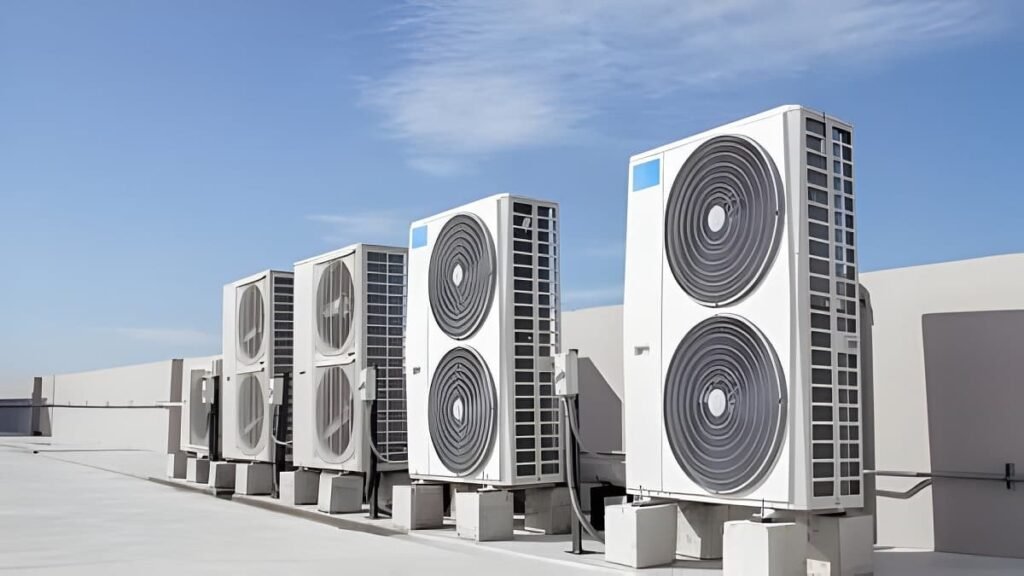Air Conditioning Maintenance: The Key to Efficient Industrial Cooling Solutions

In the realm of industrial operations, maintaining a comfortable and controlled environment is critical for productivity and equipment longevity. Air conditioning systems play a vital role in achieving this, particularly in industries that rely heavily on temperature-sensitive processes. Effective air conditioning maintenance is essential to ensure that these systems operate efficiently and reliably.
Understanding the Importance of Air Conditioning Maintenance
Air conditioning maintenance encompasses a series of routine checks and services designed to keep the system running smoothly. Regular maintenance can prevent unexpected breakdowns, improve energy efficiency, and extend the lifespan of the equipment. In industrial settings, where large-scale cooling systems are often employed, the stakes are even higher. A malfunctioning air conditioning unit can lead to significant operational disruptions, affecting not just comfort but also production outputs.
Proper maintenance helps to identify potential issues before they escalate into costly repairs. For instance, routine inspections can detect refrigerant leaks, which not only decrease cooling efficiency but can also lead to serious environmental and health issues. Regular cleaning of coils, filters, and ducts is also crucial, as dust and debris can accumulate and obstruct airflow, making the system work harder and consume more energy.
Components of Effective Air Conditioning Maintenance
- Routine Inspections: Regular inspections by trained technicians can help identify and address minor issues before they lead to system failure. These inspections should include checks on electrical connections, refrigerant levels, and mechanical components.
- Filter Replacement: Air filters should be replaced or cleaned regularly to ensure optimal airflow and air quality. Clogged filters can significantly reduce efficiency and strain the system.
- Coil Cleaning: The condenser and evaporator coils should be cleaned periodically to remove dirt and debris that can inhibit their ability to absorb and dissipate heat.
- Drain Line Maintenance: A blocked drain line can cause water damage and affect the performance of the cooling system. Regularly clearing the drain line is an essential maintenance task.
- Temperature Calibration: Ensuring that the thermostat is correctly calibrated is crucial for maintaining the desired temperature. An inaccurate thermostat can lead to inefficient cooling and increased energy costs.
- Energy Efficiency Checks: Regular maintenance should also include evaluating the system’s energy efficiency. Upgrading to more energy-efficient units or retrofitting existing systems can lead to significant savings over time.
Industrial Cooling Solutions: Beyond Traditional Air Conditioning
In addition to traditional air conditioning systems, many industries are now exploring advanced industrial cooling solutions. These include chillers, evaporative cooling systems, and specialized cooling towers. Each of these solutions has its own set of maintenance requirements and benefits.
For example, chillers are often used in large industrial applications for their ability to provide substantial cooling capacity. Regular maintenance of chillers involves checking the refrigerant charge, inspecting the compressor, and ensuring that water treatment processes are in place to prevent scale and corrosion.
Evaporative cooling systems are another effective solution, particularly in arid climates. These systems use water evaporation to cool air and can be more energy-efficient than conventional air conditioning. However, they require specific maintenance practices, including regular water treatment to prevent algae and mineral buildup.
Conclusion
In conclusion, air conditioning maintenance is crucial for the efficiency and reliability of industrial cooling solutions. Regular maintenance not only extends the lifespan of the equipment but also ensures optimal performance and energy efficiency. By investing in routine maintenance and exploring advanced cooling solutions, industries can maintain comfortable working environments while minimizing operational disruptions and costs. As industrial operations continue to evolve, prioritizing effective air conditioning maintenance will remain a cornerstone of successful and sustainable practices.
Click the link below to find out more!






